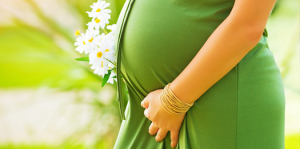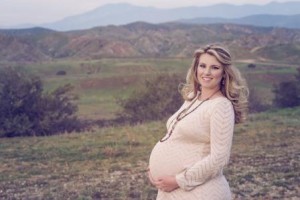- Calls to this hotline are currently being directed to Within Health, Fay or Eating Disorder Solutions
- Representatives are standing by 24/7 to help answer your questions
- All calls are confidential and HIPAA compliant
- There is no obligation or cost to call
- Eating Disorder Hope does not receive any commissions or fees dependent upon which provider you select
- Additional treatment providers are located on our directory or samhsa.gov
Eating Disorders and Pregnancy

Pregnancy is an especially vulnerable and delicate time for both mother-to-be and the developing baby. Many women who struggle with an eating disorder may become pregnant either while actively engaging in an eating disorder or in the recovery phases.
Even for a woman who has been in recovery from an eating disorder for a long period of time, pregnancy can trigger old habits and behaviors with the new changes and symptoms typically experienced during this time.
For example, a woman who has previously suffered with anorexia may be triggered by the normal weight gain associated with a healthy pregnancy. Similarly, a woman battling bulimia may feel more inclined to purge with any sensation of fullness as her baby grows. Women who have an eating disorder during pregnancy can present with extreme risks to both mother and baby, particularly if left untreated.
While pregnancy is a joyous miracle, for someone struggling with an eating disorder, it can be a frightening and overwhelming experience. If you or your loved one is pregnant and struggling with an eating disorder, you can ensure a healthy outcome for you and your baby by seeking the appropriate help and care you need.
Statistics
The following are pertinent statistics about eating disorders during pregnancy that can bring greater insight to the delicacy of this issue:
- Eating disorders affect approximately seven million American women each year and tend to peak during childbearing years [1].
- Pregnant women with active eating disorders are at a much higher risk for delivering preterm and low birth weight babies [2].
- Pregnant women with an active eating disorder appear to be at greater risk for having a Cesarean section and developing postpartum depression [2].
- Pregnant women with active eating disorders are at increased risk of hyperemesis, delivering infants with significantly lower birth weights and smaller head circumferences [2].
Causes of Eating Disorders During Pregnancy
Typically, women who have eating disorders during pregnancy, such as anorexia or bulimia, struggled with this condition prior to conceiving. For some women, the changes and symptoms associated with pregnancy may exacerbate the eating disorder, often complicating the pregnancy and jeopardizing the health of mother and baby.
For other women, pregnancy may encourage improvement or remission in their eating disorder, as the mother seeks to improve the outcome for herself and baby. Regardless, because of the crucial needs for both mother and the developing baby, professional treatment should be sought to ensure an eating disorder is not interfering with normal growth and progression of pregnancy.
Signs and Symptoms of Eating Disorders during Pregnancy
Women who are actively struggling with an eating disorder during pregnancy will display certain signs and symptoms. If you or a loved one is struggling with an eating disorder during pregnancy, these symptoms may help you become aware of what you are dealing with or lead you to reach out for professional help.
Common signs and symptoms of an eating disorder during pregnancy include but are not limited to:
- Little to no weight gain or weight loss throughout the pregnancy
- Restriction of major food groups
- Feeling fearful of becoming overweight
- Engaging in extreme forms of exercise to burn calories
- Inducing vomiting to get rid of food eaten
- Chronic fatigue
- Dizziness, headaches, blacking-out
- Skipping or avoiding meals
- Difficulty concentrating
- Social avoidance of family or friends
- Increased depression or anxiety
If you or your loved one has been experiencing any of these above symptoms as a result of an eating disorder, it is recommended that you seek medical and professional help immediately.
Effects of Eating Disorders during Pregnancy

The effects of an eating disorder during pregnancy can be debilitating if not treated or addressed professionally. Understanding how an eating disorder may affect the various facets of your life as well as your unborn baby may encourage you to get the help you need and deserve.
The following are some of the effects of an eating disorder during pregnancy:
Physical Effects – These are some physical effects that may be experienced:
- Premature labor
- Low birth weight in baby
- Cardiac irregularities
- Stillbirth or fetal death
- Gestational diabetes
- Miscarriage
- Preeclampsia
- Complications during labor
- Respiratory Difficulties
- Abnormal fetal growth
- Increased risk of cesarean birth
- Difficulties breastfeeding
Psychological Effects – Eating disorders will have a tremendous impact on your mental health, particularly if it is left untreated. Some of the psychological effects that may be experienced include:
- Postpartum depression
- Anxiety or panic attacks
- Low self-esteem
- Poor body image
- Suicidal ideations
Finally, eating disorders will affect the manner in which you or your loved one is able to relate socially. Effects of eating disorders during pregnancy on one’s social life include:
- Withdrawal or isolation from loved ones, social functions or events
- Lack of enjoyment in hobbies or activities once enjoyed
- Marital or familial conflicts
Eating Disorder Treatment During Pregnancy
 If you or a loved one is suffering from an eating disorder and is currently pregnant, it is important you seek the help and treatment you need to promote a healthy outcome for you and your baby.
If you or a loved one is suffering from an eating disorder and is currently pregnant, it is important you seek the help and treatment you need to promote a healthy outcome for you and your baby.
Effective eating disorder treatment during pregnancy will include regular visits with your Obstetric Doctor to closely track the growth and development of your baby, a counselor or therapist who can help guide you through any fears or concerns you may be facing, and a nutritionist, who help ensure you are in-taking adequate nutrition for you and your baby.
Finding a support group and attending pregnancy or parenting classes can also be helpful in your journey as you prepare to become a mother. Several forms of help and eating disorder treatment are available to you to support the best possible outcome of your pregnancy.
Articles on Pregnancy and Eating Disorders
- Unfortunately, women with eating disorders still have to deal with the disease even when they are pregnant. Often, many women who struggle with disordered eating will continue with extreme dieting and/or constant exercising. This type of eating disorder is called Pregorexia and it can be just as damaging as any other eating disorder, but it also affects the unborn child.
- Pregnancy, with all its complexities and delicacies, can be further complicated by an eating disorder. With an estimated 10 million females struggling daily with an eating disorder, it is not uncommon that a woman can develop a disease, such as anorexia or bulimia, during her childbearing years. For a woman who is struggling with disordered eating, it would be good to know what to expect if you become pregnant and have an eating disorder.
References:
[1]: “Pregnancy and Eating Disorders” http://americanpregnancy.org/pregnancyhealth/eatingdisorders.html [2]: “Pregnancy outcomes in women with Eating Disorders” http://www.womensmentalhealth.org/pregnancy-outcomes-in-women-with-eating-disorders/About the authors:

Jacquelyn Ekern, MS, LPC – President and Founder of Eating Disorder Hope
Jacquelyn founded Eating Disorder Hope in 2005, driven by a profound desire to help those struggling with anorexia, bulimia and binge-eating disorder. This passion resulted from her battle with, and recovery from, an eating disorder. As president, Jacquelyn manages Ekern Enterprises, Inc. and the Eating Disorder Hope website. In addition, she is a fully licensed therapist with a closed private counseling practice specializing in the treatment of eating disorders.
Jacquelyn has a Bachelor of Science in Human Services degree from The University of Phoenix and a Masters degree in Counseling/Psychology, from Capella University. She has extensive experience in the eating disorder field including advanced education in psychology, participation and contributions to additional eating disorder groups, symposiums, and professional associations. She is a member of the National Eating Disorder Association (NEDA), Academy of Eating Disorders (AED), the Eating Disorders Coalition (EDC) and the International Association of Eating Disorder Professionals (iaedp).
Jacquelyn enjoys art, working out, walking her golden retriever “Whisky”, reading, painting and time with family.
Although Eating Disorder Hope was founded by Jacquelyn Ekern, this organization would not be possible without support from our generous sponsors.
The opinions and views of our guest contributors are shared to provide a broad perspective of eating disorders. These are not necessarily the views of Eating Disorder Hope, but an effort to offer discussion of various issues by different concerned individuals.
We at Eating Disorder Hope understand that eating disorders result from a combination of environmental and genetic factors. If you or a loved one are suffering from an eating disorder, please know that there is hope for you, and seek immediate professional help.
Published on April 24, 2012
Reviewed And Updated By: Jacquelyn Ekern, MS, LPC on April 16, 2019.
Published on EatingDisorderHope.com

